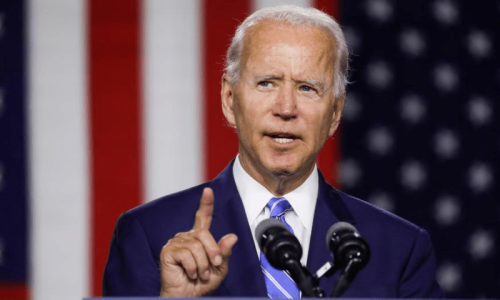KHARTOUM: Air strikes again shook Sudan’s capital on Monday while the latest truce talks in Jeddah yielded no progress and a Saudi diplomat said both sides consider themselves “capable of winning the battle”.
Sudan was thrown into deadly chaos when fighting broke out on April 15 between the forces of army chief Abdel Fattah al-Burhan and his deputy turned rival Mohamed Hamdan Daglo, who heads the paramilitary Rapid Support Forces (RSF).
Battles have since killed hundreds, wounded thousands and uprooted hundreds of thousands, leading to fears of security fallout beyond Sudan’s borders.
The warring generals have sent representatives to Saudi Arabia for talks on establishing a humanitarian truce in an effort also backed by the United States.
Washington and Riyadh have labelled these “pre-negotiation talks”.
By Monday, the discussions had yielded “no major progress”, a Saudi diplomat said, speaking on condition of anonymity.
“A permanent ceasefire isn’t on the table... Every side believes it is capable of winning the battle,” the diplomat added.
For Kholood Khair, founder of the Khartoum-based think tank Confluence Advisory, the delegations “are there mostly to curry favour with the Saudis and the Americans, rather than to credibly use this platform as a means to reach an agreement.”
In Khartoum, a city of five million, terrified residents reported more combat, now in its fourth week, as they tried to cope with power outages and sweltering heat.
A southern Khartoum resident said the family could hear “the sound of airstrikes which appeared to come from near a market in central Khartoum”.
----’Dangerous everywhere’----
The fighting has sparked a mass exodus of foreigners and of Sudanese, in land, air and sea evacuations.
“It’s very dangerous everywhere,” said Rawaa Hamad, who escaped from Port Sudan on an evacuation flight carrying 71 people to Qatar on Monday.
In Sudan, she said, people endure “a lack of everything — a lack of water, lack of fuel, lack of medicine, lack of even hospitals and doctors”.
The battles in the capital and in other parts of the country have killed more than 750 people and injured over 5,000, according to the Armed Conflict Location and Event Data Project.
In Sudan’s long-troubled western region, almost 200 people have been killed in West Darfur state over the past two weeks, the United Nations said.
It has warned of a widening humanitarian crisis. Fighting has already displaced 335,000 people and created in excess of 120,000 refugees who have fled north into Egypt, west to Chad, and to South Sudan as well as elsewhere, according to the UN.
Published in Dawn, May 9th, 2023














































Dear visitor, the comments section is undergoing an overhaul and will return soon.